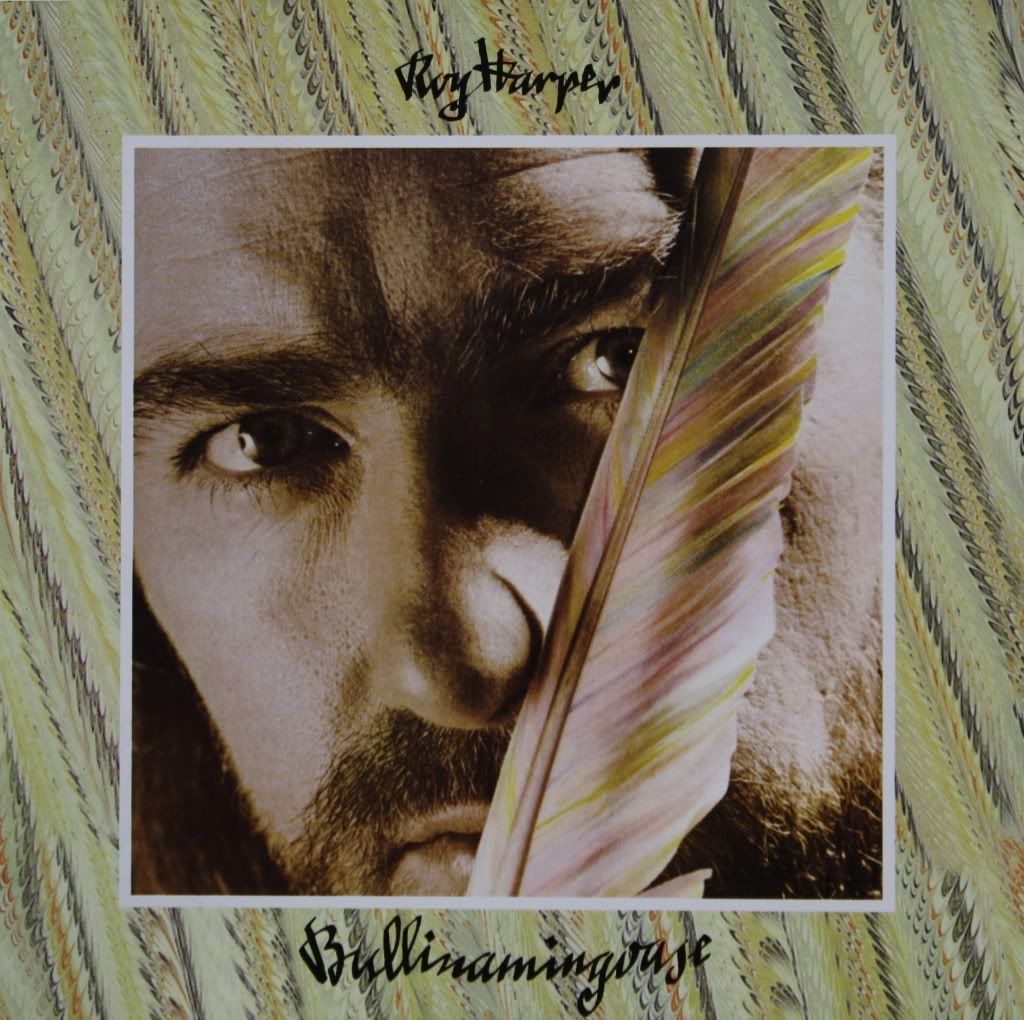Bullinamingvase (apologetically titled One of Those Days in England for the US release) is Roy Harper's last album of the 1970's as well as his last truly great album for at least eight years (or more, depending on whose opinion you're hearing). Like HQ before it, this album delves further into a full band sound with slight progressive and psychedelic flourishes. Although the band is different and a bit less distinctive (no more Bill Bruford or Chris Spedding, unfortunately), the production is probably even more diverse than HQ's and the overall flow is smoother and more coherent--the album succeeds because Harper's songs exemplify the things that made his earlier works unique while at the same time entering territories as yet untrod by the the songwriter.
Listening to the "One of Those Days in England (Part 1)," it's hard to imagine the track was only worked up at the behest of the label in order to provide a single for the album--though the words are light, the song (in addition to being catchy with a great steel guitar riff and Paul and Linda McCartney on backing vocals) establishes a dreamy, wistful tone that permeates much of the album, not to mention the fact that it first introduces the melodic theme that will return several times in the song's later parts. "These Last Days" is a fascinating Harper song to which I find myself continually returning. In it the oft-indignant singer takes on a tone of acquiescence, singing "we might have to take the world the way we've made it"... "I'm not sure that any side is right/any side." The subtly jazzy harmony of the music is suitably narcotic for the song's message, and the final lines "Some of us ain't satisfied with less than any universe/Well hell I'll have to go along with that, 'cause I've got mine" eerily predict the self-absorbed malaise that seems to have stifled any chance at an efficacious counterculture movement in the 30+ years since the song was recorded.
"Cherishing the Lonesome," a hopeful love song is another favorite, with a dynamic arrangement that showcases Harper's inimitable fingerstyle guitar but also crescendos into a progressive full-band arrangement with overdriven electrics and some well-placed xylophone. "The Naked Flame" (a perpetual live performance survivor) is country-tinged with more steel guitar, recounting a dissolving relationship with some more great lines ("I can't believe we'll just exist/as figments of each other's past"), while the absurdly irreverent "Watford Gap" is a hoe-down singalong that rips the shit out of a roadside diner often frequented by touring bands. After listening to some of the lines ("the city's like a goolie in a groupie's stagnant womb," par example) it's easy to tell why early versions of the album excised the track for fear of legal reprisals. No one can accuse Roy of completely abandoning controversy despite this being one of his more meditative outings.
Of course, the sidelong "One of Those Days in England (Parts 2-10)" is the album's crown jewel--the pinnacle that the rest of the album's formidable poetry hints at. Harper's last great epic is suffused with English mythology, imagery and history and glows with sentimental passion. Harper employs parallel structure to simultaneously consider his changing homeland as well as the nature and trajectory of the human race and the passing of time. Throughout, Harper's humanistic outlook is at its most compelling, tempering his fire with the salt and wisdom of life experience, along with some vivid recollections of early-40's England. Where numerous singer/songwriters fail to provide interesting arrangements when playing in a full-band setting, Roy adorns his core voice/guitar nucleus with some great piano, a bit of harp, and plenty of (relatively) hard rock interludes and varying tempos and textures.
Though the songs on this album are geared toward a full band setting, Harper's at heart an intimate character--the songs play equally well in an all-acoustic setting, and the backing band is never the center of the show the way it almost was at times on HQ. Still, the production Roy was granted by EMI and Harvest is undeniably high-class, demanding that the music be taken seriously by simply sounding good. Not a lot of madcaps of Roy's stripe had so many opportunities to fully realize their musical visions, especially not at the end of the 1970's, and Bullinamingvase makes good on the investment (well, artistically, if not especially commercially, though I think the album performed fairly well in comparison with Roy's other releases). Though Roy's later career has had numerous peaks, Bullinamingvase is his last big success with a big label, fully utilizing the professional support without the bitterness or dodgy production judgment that would follow on The Unknown Soldier and Commercial Breaks.
You can buy it from Roy here, or here


No comments:
Post a Comment